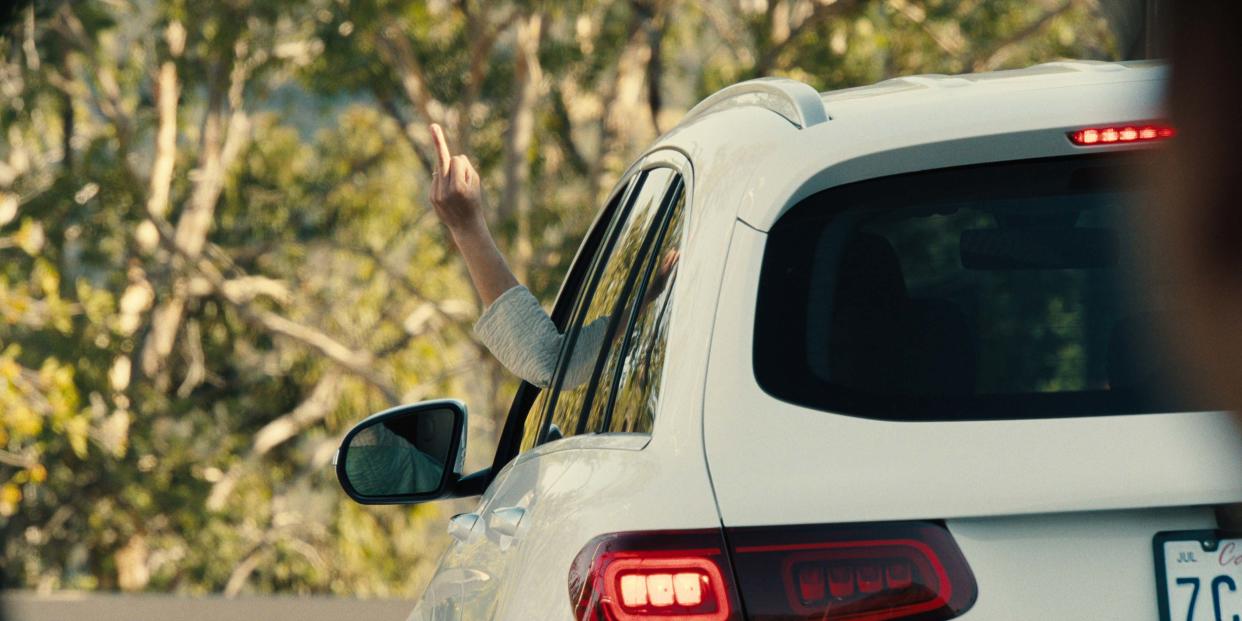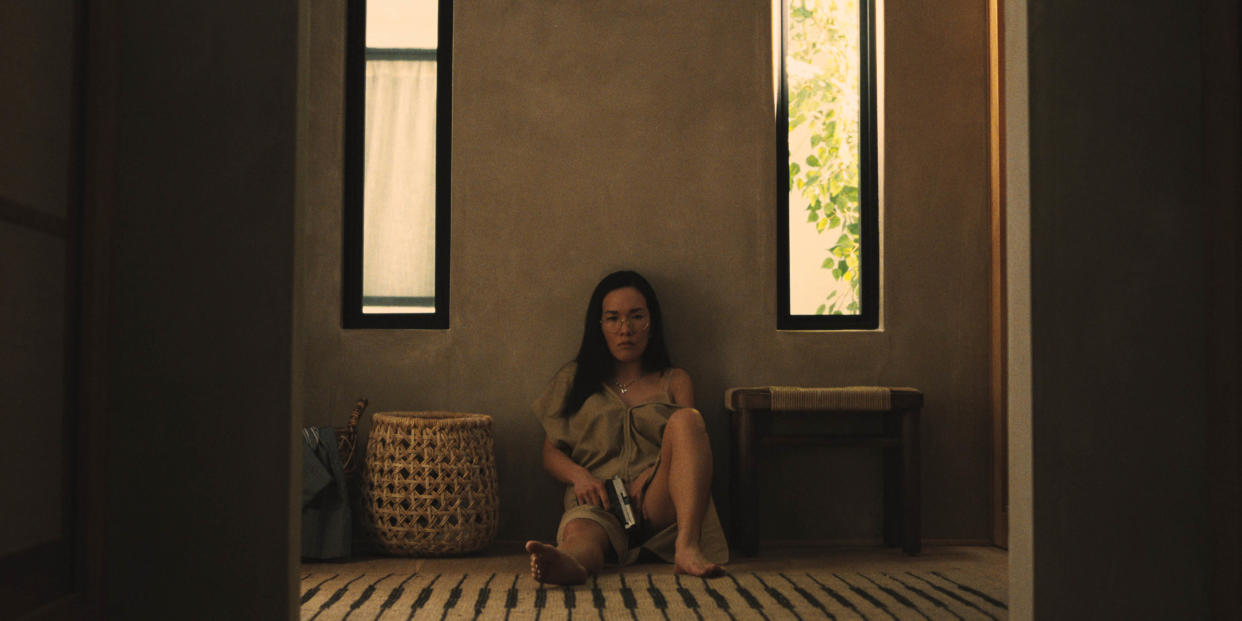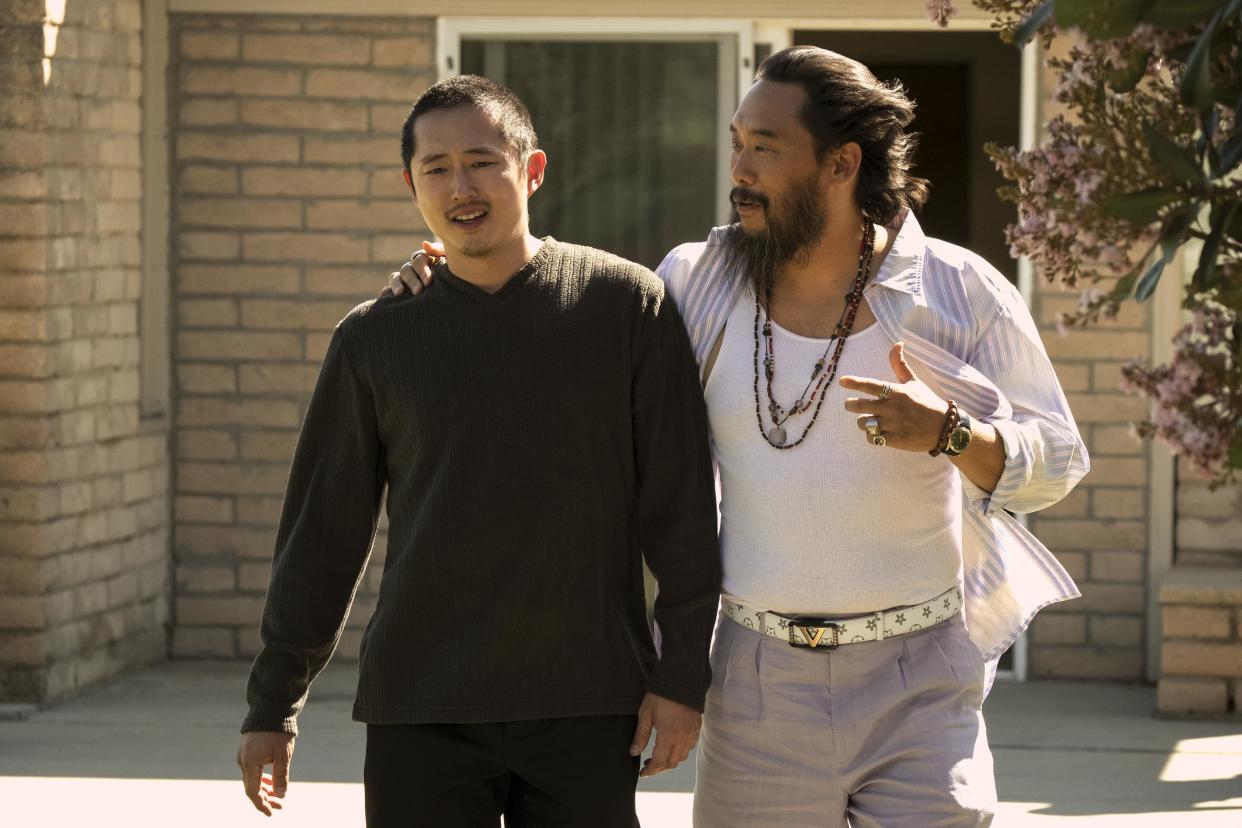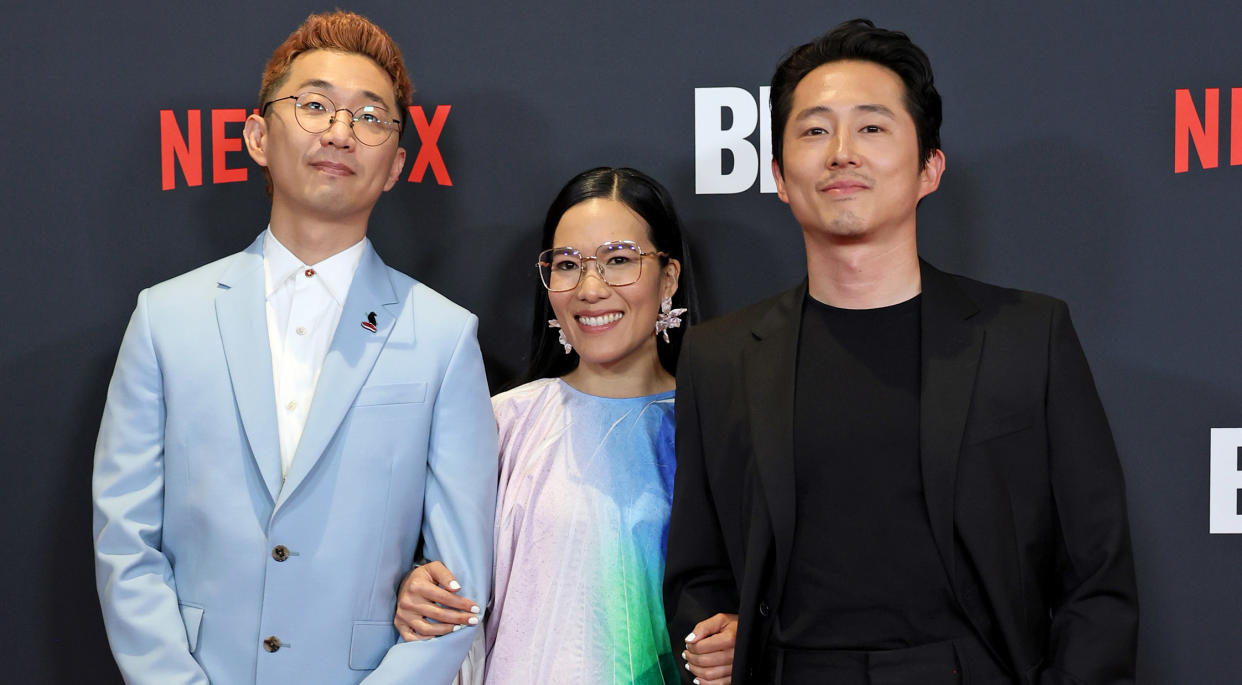Ali Wong's role in 'Beef' was originally envisioned for a white man — specifically, Stanley Tucci
Netflix’s new comedy-drama limited series, "Beef," debuts on April 6 with a potentially history-making all-Asian American cast.
But things could've gone a very different direction had the show's creator stuck with his initial idea for one of the lead characters.
Amy Lau, played by Ali Wong, is first seen as just a disembodied arm flipping the bird out the widow of a pristine white SUV at Danny Cho, played by Steven Yeun.

Amy, an entrepreneur in a struggling marriage, becomes a new nemesis for Danny and their resulting beef is the driving force behind the increasingly consequential events that change both of them forever.
But initially, the show's creator Lee Sung Jin — who based the show on somewhat true events — envisioned a white man in the role Wong eventually landed.
But after talking to the comedian about an unrelated subject, Lee had an a-ha moment: She was perfect for the part.
Wong recalls the conversation to TODAY.com.
“He called me the next day and was like, ‘Well, you know, I just want to tell you I have this idea that I’ve been kicking around for a while but this road rage incident based on something that happened in real life. I always pictured the person opposite of Steven a white man, but now I’m thinking that it would be a lot more interesting if it was you,” she says.

At a South By Southwest event in March, Lee shared that initially, for maybe half a day, he and Yeun also envisioned Wong’s character as actor Stanley Tucci ... playing a version of himself. Ultimately, they decided that felt “too literal.”
Lee said that after speaking with Wong, he realized she had “such a funny way of talking about harsh things in life, and it made me think, ‘Oh what about Ali?’’”
Lee shared that he went on to sell the concept to Netflix before he’d even written the pilot episode.
He said that having the two stars involved from the beginning as creative partners — complete with late-night text conversations spent flinging around ideas — helped them craft the perfect pitch before shopping the show around to studios.
“Having that back and forth allowed us to really fill these characters fully before we took it out,” he said.
Below, find out more tidbits about the "Beef" cast.
What was the significance of having artist David Choe play Danny’s cousin Isaac?
Isaac's role starts out small. The initial episode reveals that his illegal dealings out of Danny’s parents’ motel had shut the whole establishment down.
As a result, Danny’s parents moved back to Korea and he — along with younger brother Paul — were struggling to make ends meet. As the show continues, Isaac takes on a bigger and bigger role in Danny’s life and (without giving too much away) he is eventually the driving force behind the show’s climax in the final two episodes.
But Lee says it was hard to cast that role. After watching hundreds of tapes from other actors, they couldn't find the right fit.

“Everyone was leaning really hard into the kind of Koreatown mafioso energy,” he tells TODAY.com. It wasn’t until he was watching “The Choe Show” — Choe’s TV series in which where he interviews famous guests from his childhood home — that it occurred to Lee that the artist might be a good fit.
“He (Choe) was talking about being abandoned by his family and I was like, ‘The way he’s talking about it just feels so Isaac,’” Lee says, adding that Choe happens to be friends with Yeun and Wong.
“And so I texted Steven (Yeun) and Ali (Wong) and asked, ‘Hey, like, do you think David (Choe) would ever act?’” he says. Choe eventually submitted “the most creative self-tape I’ve ever seen in my life,” Lee says, complete with bloopers and creative editing, and the rest was history.
“I just knew he was perfect,” Lee says. “That guy doesn’t know how to be false ... every scene, he’s just so authentic.”

The significance of an all-Asian American cast
Lee says it wasn’t an intentional “top-down” decision to make the cast entirely Asian American. Once he started exploring the leads' worlds, it “just naturally filled out that way.”
Danny is “very intense” with his Korean family and his return to the Korean church. Amy’s character, in addition to portraying herself as a “Zen” person to sell products to mainly white audiences, marries into “a high art Japanese family, almost for optics," Lee says.
In a New York Times interview published this week, Lee and Yeun revealed they'd initially bonded as friends at least partially because they'd both grown up in the Korean church.
When the show filmed at a church in the San Fernando Valley, they relied on cast members' friends to help cast the show. In fact, the actor who plays the praise team leader on the series, Justin Min's older brother Jason, was Lee's best friend in college.
Jason Min, who is a pastor now, helped arranged all the religious songs in the show and got the praise team and extras from his actual church to be in the show. Some of them even already knew Yeun.
"There were these little kids going, 'Uncle Steven!'" Lee told The New York Times.
"That week was really fun," Yeun said. "There was something very nostalgic about that week."
The future of Asian Americans in film and TV
Speaking to TODAY.com, actor Joseph Lee — who plays Amy's husband George Nakai — says he thinks the fact there is an all-Asian cast, playing fully developed characters, in a Netflix show is "phenomenal."
"I think the industry is embarking on this next stage, where it's not only about just showing faces that look like this," he said, gesturing at his own face, "but now it's really about extrapolating, and then really dissecting what it means to look like this."
He predicts this is the start of a sea change.
"I think the storytelling and the filmmakers and writers that you're going to be seeing even five, 10 years from now, it's going to be even better than what you're seeing right now," he says. "We're just really excited just to be a part of this moment."
This article was originally published on TODAY.com
